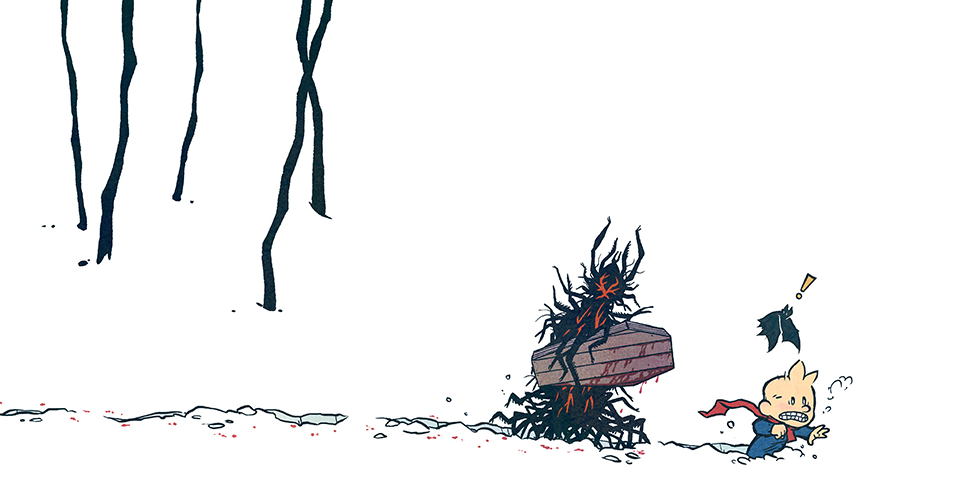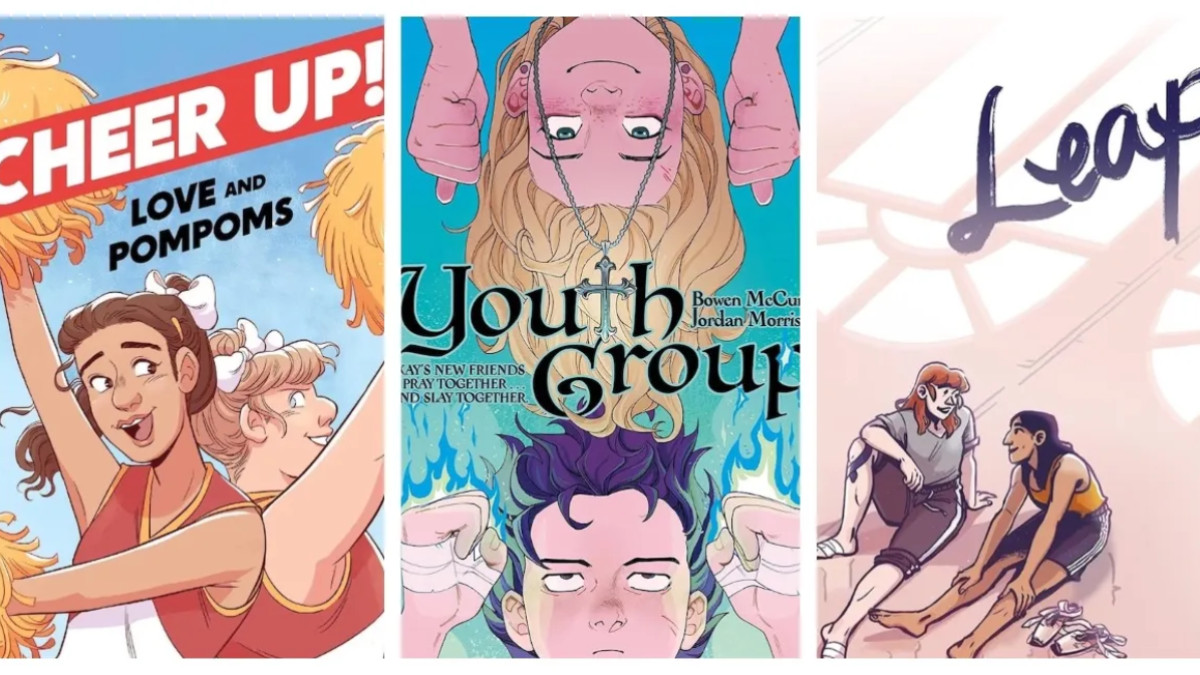It’s well and truly the holiday season, and though there’s plenty of joy in treating your loved ones, these are hard times for your average comic book reader. Buying digital might curb your spending, but for those pinching pennies, there’s a frontier of writers showcasing their work online. It’s not all Cyanide and Happiness out there. Below are three excellent, varied examples that are worth your time and cost only a web connection.
Begun in the summer of 2005 and still ongoing, Templar, AZ is ‘speculative fiction, an alternate timeline, and an alternate history’, according to writer and artist Spike Trotman. This parallel Arizona is in equal parts archaic, contemporary and strangely reminiscent of Daniel Clowes’ Ghost World—at least in the monochromatic first chapter. Each new chapter boasts its own art style, and Trotman’s broad and intuitive artistic ability, but it’s the characters’ existence within this sculpted otherworld which entices the reader.
Ben, the first character we meet, is endeared to us through a bizarrely nasty conversation with his editor—think J. Jonah Jameson before his morning coffee. But the view he has from his bedroom window, of robed statuettes in gothic contrast with the city’s grunge, and people in dust masks, togas and oversized t-shirts all rubbing shoulders, makes him the reader’s ambassador. It’s alongside Ben that we are taught about this Arizona, with nary a hint of exposition. And the irresistible vibrancy of his teacher, Reagan, sweeps us into the city’s culture and history, which ends up feeling quite familiar. In fact, one of the strengths of this webcomic is how certain readers’ comments flesh out the real-world historical and cultural references in Trotman’s work. Templar, almost a decade ago, proved to be one of those now ever more numerous creations bridging the gap between artist and audience.
Creating approachable comics about the harsher difficulties in many people’s lives would be a challenge and a half for anyone, but Kate Leth has it down to an art. Through the lens of wit in each of her sketches, she makes touching and relatable statements for feminists, people suffering from depression, anyone whose sexual identity strays from the mainstream, and everyone who’s been the weird kid at school. Even for those who haven’t had all the same life experiences, she has a kindly informative tone. These vivid parables are well spaced out between some beautiful one-off pieces and funny instances in her day to day life, particularly the irks of working in a comic shop.
Throughout her archives, especially for those of a geeky disposition, there’s plenty of opportunities for a chuckle or knowing smile. One of the highlights of looking through three years of her work is that she’s willing to show her readers the full scope of her art, from angry five-minute scribblings to Little Ghost, her more recent comic with an ongoing storyline. It’s no mean feat, considering that she pours her anxieties into deeply personal comics, in turn giving voice to many with the same troubles.
This webcomic takes the horror trope ‘person visits property of distant dead relative’, and uses the panel format to breathe in new chills. Kris Straub’s story of the Twin Peaksian town of Broodhollow follows the curiously anxious and pattern paranoid Wadsworth Zane. A door-to-door salesman for the Encyclopedia Atlantica, he represents the futility of depending on a format outdated by the time it’s available, as well as being the man of science faced with the supernatural in the tradition of gothic literature.
While Broodhollow quickly breaks the law of never revealing your monster, disturbance breeds from the feeling that it’s always lurking behind the panels. Even more so as it’s suggested it’s nowhere close to the town’s greatest horror. Although it might not seem so at first, this story’s deepest darkness lies in subtlety—the terrible potential of doors left ajar—and expert attention to detail, colour and timing make for intense thrills and humour. The inexplicably unsettling quirks of characters, odd turns of phrase and pastoral holidays are hard to pin down as one thing or the other, pressing the question whether it’s the town that’s haunted, or Zane’s nervous disposition making it seem so. And all the while, this makes us question our own morbid fascination with seeking out the reality.
Webcomics aren’t for everyone, but if you’re tired of forking over your hard earned money for the underwhelming, or if you just want to cut back on your budget, the above are all great starting points. Go now, there’s a whole wide web to explore.
(image via Broodhollow)
Newly minted Masters student, Elisabeth O’Neill is a comic collector, sci-fi fancier and hero for hire. Likes: Bjork, boots, pancakes and penguins. Dislikes: kobolds, cool kids, trolls and mild cheddar. You can find her on Twitter @ LittleTinMiss
Are you following The Mary Sue on Twitter, Facebook, Tumblr, Pinterest, & Google +?









Published: Jan 1, 2015 02:00 pm